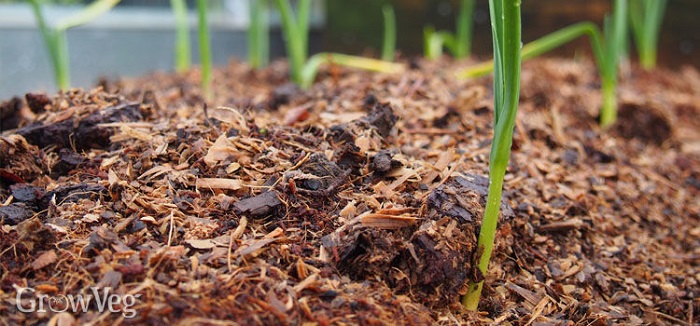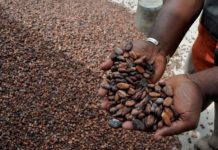Mulching is the process of covering the soil surface around the plants in order to create favorable conditions for the crop growth. This may include moisture and soil conservation, temperature moderation, salinity and weed control etc. Ideally, mulching has a significant effect on earliness, yield and quality of the crop.
Types of mulching materials used may be organic plant residues, insert material like pebble etc. or and synthetic materials like plastics. However, it is important to note that every material has got its merits and demerits.
Advantages of mulching
Weed control
Plants require photosynthesis for purposes of food generation. This requires sunlight. For instance, the use of plastic mulch film prevent the weed plant growing below it from accessing the sunlight. This, in turn hampers the growth of the weed, while working as a control measure as well.
Moisture conservation
Plastic film with its moisture barrier properties does not allow the soil moisture to escape. As such, the water that evaporates from the soil surface under mulch film condenses on the lower surface of the film and falls back as droplets.
Reduction in fertilizer costs
Water’s leaching property causes wastage of the dissolved fertilizer. On the other hand, the use of plastic mulch along with drip irrigation allows the dissolved fertilizer not to go deep into the soil. This in turn allows timely and even distribution of nutrients to the plant. This not only ensure healthy plant growth, but also saves on the amount of fertilizer used.
Quality produce
Plastic mulches prevent the ripening of fruits as a result of direct soil contact. This thereby decreases fruit rot as well while keeping the fruit and vegetables clean. This gives quality produce and better marketability.
Reduction in soil compaction
The plastic mulch covering the soil decreases the crusting effect of rain and sunlight. Furthermore, the reduction in weed quantity means a decreased need for mechanical cultivation. As such, practices such as weed control between beds of plastic can be done using directly applied herbicides as well as through mechanical means. This means that the soil underneath the plastic mulch stays loose and well aerated.
Soil Erosion
Ideally soil erosion should be less than 4 to 5 tons per hectare on annual basis. One of the greatest advantages of a plastic mulch is the reduction of water runoff and erosion. This is because the cover, by intercepting raindrops, ensures the protection of the valuable fertile soil.
Precautions for consideration in mulching
Mulches can be homes to pests, although combining with other good organic practices should minimize this.
Organic mulches usually need to be applied in the first stages of decomposition. Failure to adhere to this causes loss of nitrogen from the soil. This is in addition to anaerobic decomposition which can lead to ‘sour mulch’ which turns acidic and damages the plants it is supposed to be protecting.
Organic mulches are supposed to be thick- generally a good 1 to 3 inches. The amount should however be increased just in case the mulch rots down to something smaller.









